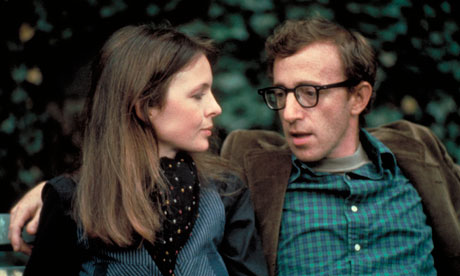
Although he recently directed the British film How to Lose Friends and Alienate People and earlier adapted Kurt Vonnegut's Mother Night for the screen, Robert Weide's speciality is documentaries about American comedians, and to it he returns in this engrossing movie. A shortened theatrical version of a two-part TV programme, it follows Woody Allen around New York as he and a vast cast of friends, colleagues and admiring observers review his life and work. The time span arches from his happy Brooklyn childhood as the much-loved son of lower-middle-class Jewish parents in the early 1940s to 2011, which found him recovering from a fallow period to make a critical and box-office comeback with his most profitable film to date, Midnight in Paris. Allen is in fine, funny, frank, self-disparaging form, there are fascinating revelations on every aspect of his life, well-chosen extracts from his films and TV interviews, and a glimpse of that Olympia typewriter, a German model, on which he has tapped out every word he's written since he bought it as a teenager some 60 years ago. Has any instrument since Shakespeare's quill been the conduit of more pleasure to mankind?
Like his hero Ingmar Bergman, Allen's style has developed steadily through distinct periods dominated by a succession of female muses – in Woody's case Diane Keaton, Mia Farrow and latterly Scarlett Johansson. The pivotal picture is Annie Hall, in which he turned from being a writer-director who put together his films in a series of brilliant comic sketches into a true cineaste who worked through character and mood, creating a new, highly influential genre, the relationship comedy. Ultimately Weide covers too much ground in his two hours, leaving us a little dissatisfied by his omissions (no reference to Bob Hope, for instance, or to Groucho Marx). However, the painful breakup with Mia Farrow is confronted, if somewhat gingerly, and it's not a film to be missed.

